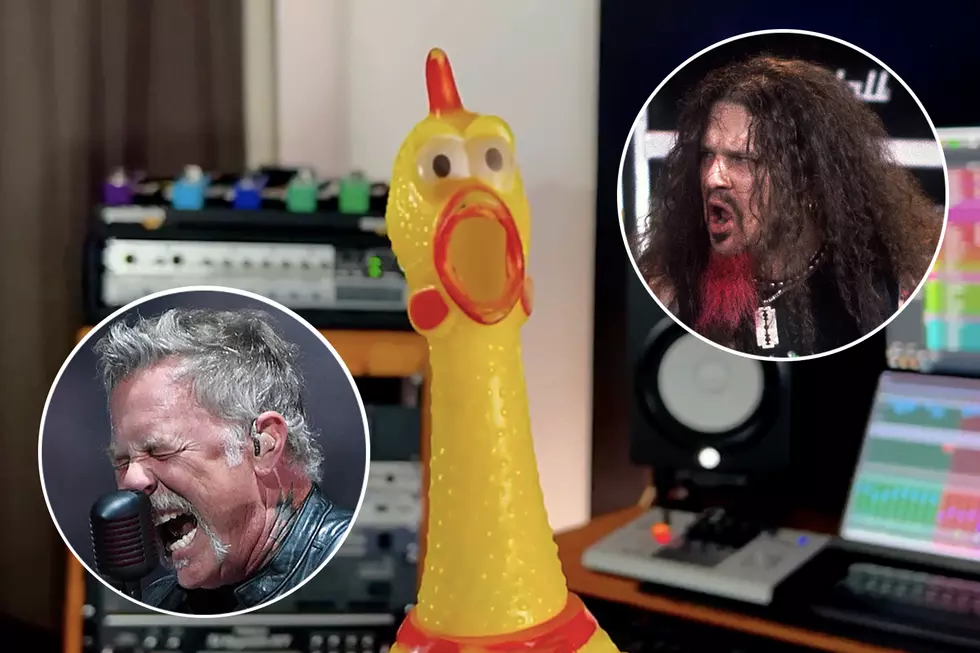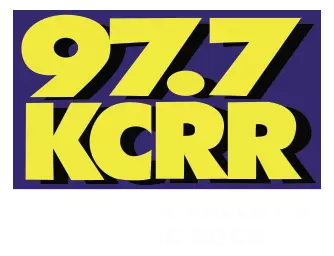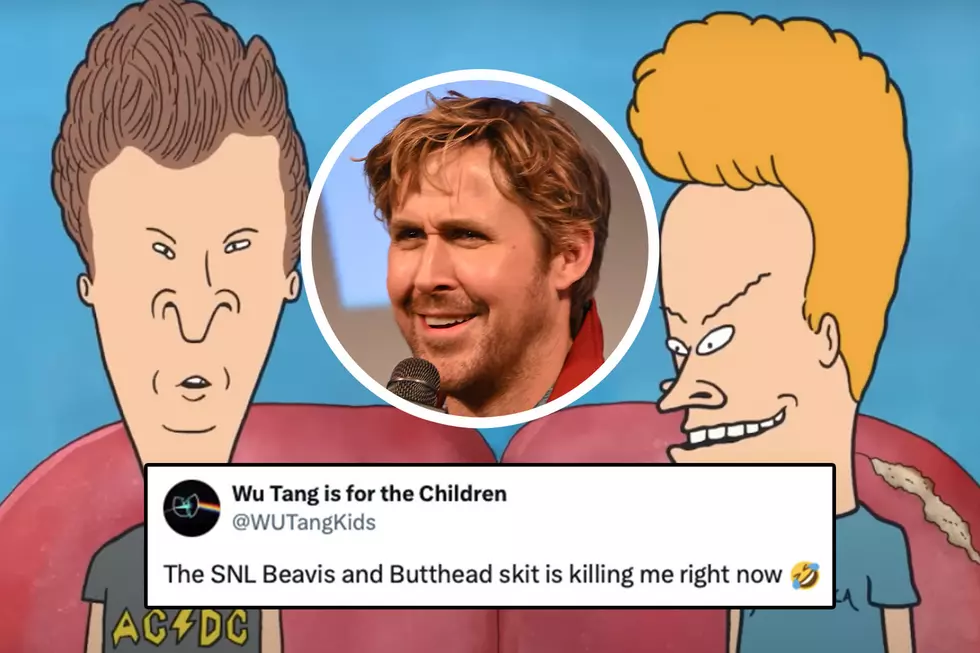
The Story Behind the Rock + Metal-Loving, Singing Mr. Chicken
Do you ever watch something really funny online and think to yourself, How did someone come up with the idea for this? After stumbling upon Mr. Chicken's Instagram earlier this summer, we had that exact thought.
Mr. Chicken is, well, a rubber chicken, and is somewhat of an internet sensation. He's amassed over 700,000 followers on TikTok, and has since expanded his creativity onto other platforms as well, including Instagram and YouTube.
His videos are mainly all covers of popular songs, but the clips are cinematic and are sometimes recreations of actual music videos. The singing somehow fits so well with the melody of the songs that it becomes addictive — you just want to watch more and more of them. Considering he's covered pretty much every genre, you're also likely to find a song you really enjoy on his account.
So, what gives? Though it may appear on the surface that there's one individual behind Mr. Chicken, it's actually a duo. David Foley is the internet marketing expert behind the project, and Franco Munoz Vukelic is the creative side — he makes all of the music and creates the videos. Together, they've created an account with hilarious and entertaining content, that's also garnered a large and dedicated following.
It all started a few years ago when Munoz Vukelic, who's a professional musician and producer, decided to start teaching singing lessons with a rubber chicken, and he uploaded a video of the chicken singing along to Luis Fonis's hit single "Despacito" on YouTube.
Mr. Chicken - 'Despacito'
Foley's involvement with Munoz Vukelic and Mr. Chicken started during the pandemic, when he was looking for ways to get involved in the TikTok universe after being introduced to the app by his stepson.
"You have to really pay attention to the retention rate, how quick somebody reacts when they see the video, are they liking it, are they sharing it, how long are they actually staying there to watch the video — you have to take in all of these metrics," Foley explained of getting started in content creation for TikTok. "So I needed disposable content."
Foley resorted to YouTube, and started experimenting and making TikTok videos out of footage he found to see what would click. After playing around with the content and trying to figure out the algorithm for a while, he eventually remembered a video he had once seen on YouTube — Mr. Chicken's cover of "Despacito."
"I remember watching it over and over and over and over again, and I shared it with every single person that I knew. That's the kind of content that goes viral. It's engrained and it's conducive to that behavior. So I went to YouTube, found the video again, clipped it and uploaded it — that thing went viral. It literally must've shot up 5 million views, I had 100,000 followers overnight and I went, This is it right here. This stuff."
A couple of other people have created their own renditions of rubber chickens singing songs, but Foley decided to track down Munoz Vukelic, who'd created the original video, and reached out to see if he wanted to collaborate.
"I went, 'Hey, you don't know me, but I would like to offer you and pay you $2,000 or $3,000 to make me four videos just like Mr. Chicken doing 'Despacito.'"
After a couple of days and a few conversations, Franco accepted Foley's offer and produced the four videos — a cover of Maneskin's "Beggin'," "Stay" by Justin Bieber and Kid LAROI, Harry Styles' "Watermelon Sugar" and "Levitating" by Dua Lipa.
Since then, they've uploaded hundreds of videos on the Mr. Chicken account, and there are a couple of ways that Foley goes about picking which song Munoz Vukelic will have Mr. Chicken cover next. Firstly, he monitors which songs are the most popular or are trending for some reason, but they also look at which songs are the most highly-requested by his fans.
Other times, Foley just picks a song he likes, and fortunately for rock and metal fans, Mr. Chicken has done covers of Metallica, Korn, Guns N' Roses, Rage Against the Machine, System of a Down, Pantera and more.
"Unfortunately, Mr. Chicken is not a very good rapper," Foley added. "He needs things that are very melodic."
Mr. Chicken, "Master of Puppets" (Metallica Cover)
Mr. Chicken's increasing popularity has garnered the attention of some radio stations, competition shows, such as America's Got Talent, and other televised news platforms. Foley isn't quite sure where he plans to take the singing chicken videos, but we're excited to follow along with their journey.
In addition to speaking with Foley, we had the opportunity to do an interview with Mr. Chicken himself, which you can see below, as well as ask Munoz Vukelic some questions about where the idea for Mr. Chicken started, how he comes up with the video treatments and more. Read the discussion underneath the video.
Loudwire Interview With Mr. Chicken
How did you start playing music and decide that’s what you wanted to pursue?
Like many fellow musicians, music is in my DNA. For as long as I can remember, even before, my parents commented that I had a great love for music and the piano, [which is likely] thanks to an uncle who played in a band. He realized that when I was 5 years old, I could play the songs that the band played, and sometimes I played with them during the rehearsals.
Later on, he had the opportunity to play in the musical Jesus Christ Superstar that was made here in Chile. The director of the band saw me and realized that she had a talent, and offered me a job to play in a restaurant. In 2007, I was already studying advertising. In the midst of an exam as I was entering my fourth year of university, I realized that it was not what I wanted to do with my life and that I was happy playing piano on weekends in a restaurant with a band. I didn't have a good time during the week studying what I was studying.
So in the middle of the exam, I stopped. I decided that wasn't what I wanted to do, and left. That's how I decided that music was what I wanted to do for the rest of my life. I decided to professionalize. I started studying with different teachers, playing a lot. And from there on, the opportunity to making a living from playing music was given to me where I live in Chile now.
I spent some time living in Brazil, where I met great people, but I returned to Chile and am working as a music producer. The pandemic forced me to reinvent myself a bit because I stop here every two years. And I discovered that music production was a talent that I also had and here I am enjoying it.
How did you discover that you could “play” a rubber chicken and create different notes and sounds with it?
The idea of playing a rubber chicken was born during a very extensive recording. It was about five hours, just to capture the lead vocals of a singer that was in the studio at the time. It was five hours of listening to a song that lasted three minutes, so my patience ran out a little.
When the recording finished, I met with a friend to rest a bit and have a beer. He asked me what was wrong, and I told him that the session was very bad and that the singer had to use a lot of a tuner. [Then I said something] that changed everything, which was, "I can even make a rubber chicken sing it better than this person." That idea remained my head for a while, and it was the engine to create Mr. Chicken.
I remember I was in the center of Santiago purchasing various things, and I saw that a lady was selling pet items, including a rubber chicken. I remembered the phrase that I said and I bought it. Later I started looking on Youtube if something like that really existed, and I realized that it didn't. I searched rubber chicken in many ways, and it did not exist.
I told him now I have to do this because I find that a very funny idea. And in the apartment where I lived, I came up with the idea to do “Despacito” because it was a song that was playing a lot here in Chile at the time. And I said, 'I'm going to make a satire of that video,' and that's how Mr. Chicken was born. Thanks to the recording with an iPad, something very precarious at that time, combined with the technology and computers.
When I did the synchronization of the audio with the video, it was something that exploded in my head — I found it very funny and I put it on Youtube. It stayed there for a long time until someone saw it and decided to make it viral. It was one of the best ideas of my life.
How do you come up with the concepts for different videos?
There are basically two ways. One is to use some iconography that the singer is famous for. It depends on the style — if it's a more playful style, we try to make a story that goes with the lyrics and that goes a little bit with the context of the song. It's all viewed from how a rubber chicken feels music.
And the other path that we take sometimes is the recreation of music videos. For example, the song “Take on Me” by a-ha or “More Than words” by Extreme, which are videos that are very easy to identify, and that the public clearly received in a very good way. The song “Africa” was also one of the biggest songs we made and we made it always thinking about that — managing to make a tribute to the videos and a tribute to the singers from the point of view of Mr. Chicken.
Where do all of the props and accessories come from?
I have an entire recording studio with a world of cables and musical instruments. I have guitars, I have basses. Sometimes I go out and buy something that can be useful. I have a suitcase full of things that I can use at some point that I bought and leave in storage. We have used them on a few occasions — hair to make him look a bit like Mariah Carey, I painted some chickens to make a KISS video.
We put makeup on them, with the memories when I left my house full of white smoke, painting a Mr. Frog and a Mini Chicken to be different characters. And so everything comes from the imagination. I try to go back to being a child to imagine it. The imagination is a great engine, something that fills us with joy and something that is very nice to explore.
Check out more Mr. Chicken videos on YouTube.




